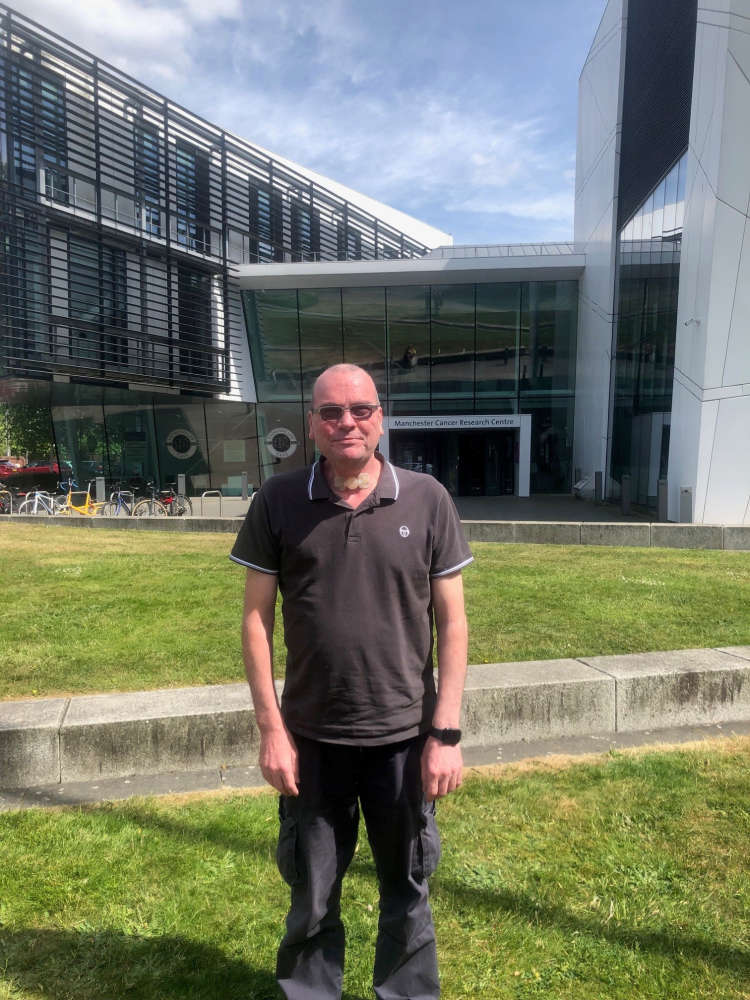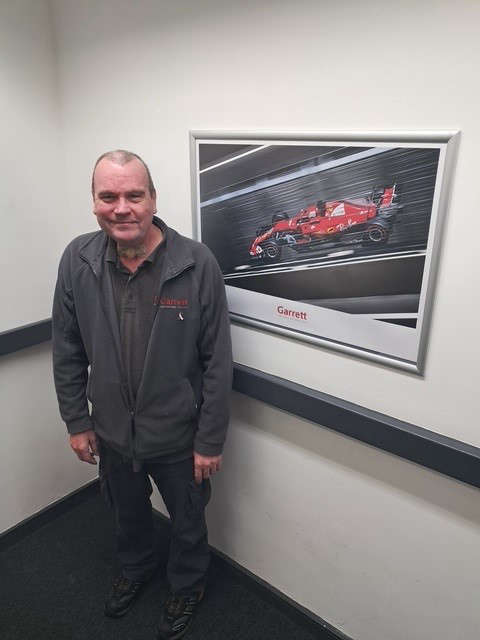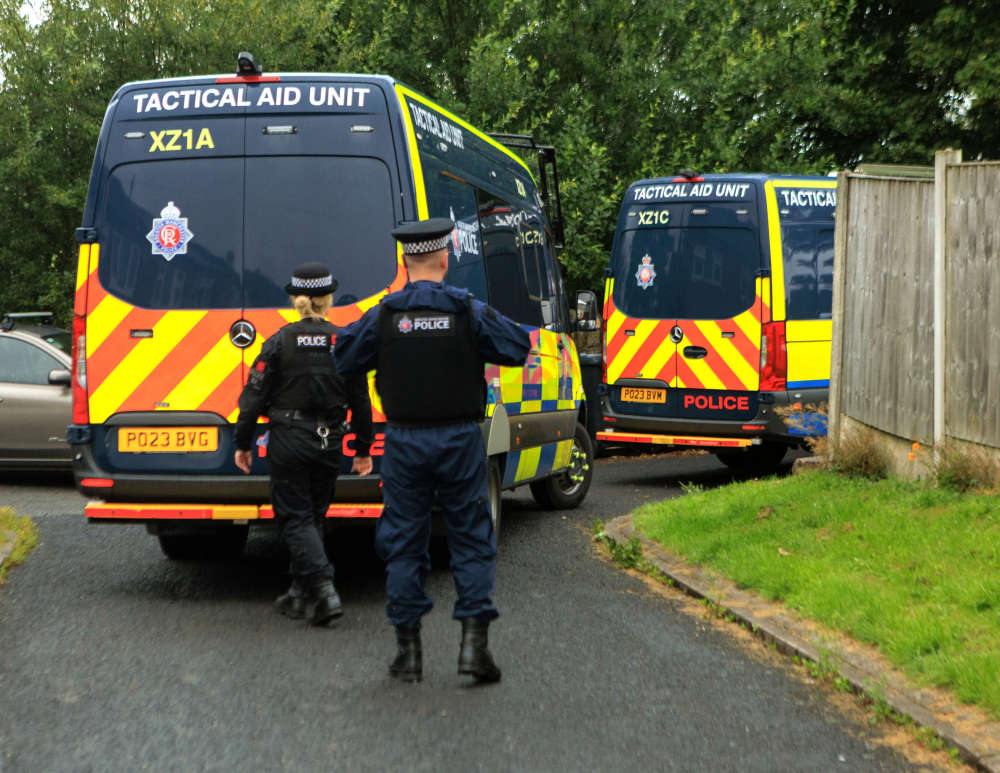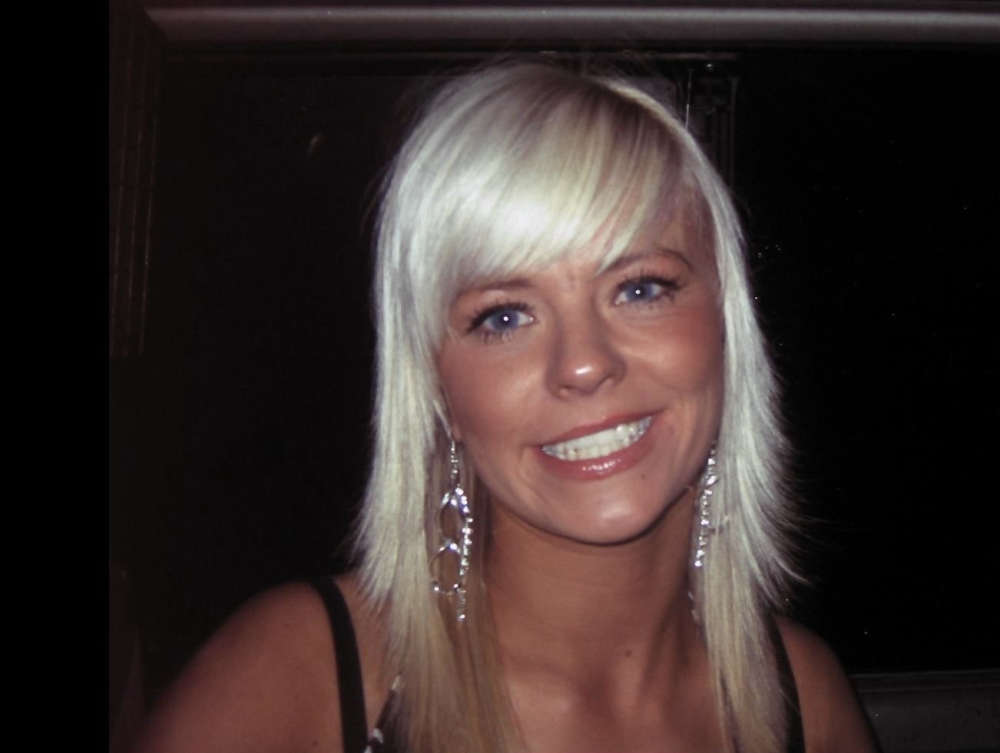
A Tameside man who builds turbochargers for anything from fast cars to trucks and has thanked the NHS for rebuilding him after cancer.
Now he is back building turbochargers to power sports cars and helping to speed up diagnosis for other cancer patients and is sharing his story ahead of World Head and Neck Cancer Awareness Day on 27 July.
When Ben Garlick, now 54, from Denton, had a persistent cough, he thought it must be COVID-19.
But when his cough wouldn’t go away, he went to his GP and was sent for tests at Tameside Hospital. It was here he got the devastating news he had cancer of the voicebox, also known as laryngeal cancer.
Ben, who has been building turbochargers for over 30 years, said: “They found a lump in my throat and told me it was cancer. My world stopped. It felt like everything was spiralling. There was nothing more Tameside could do so I was transferred to Manchester Royal Infirmary who were luckily able to treat me.”
From that moment, Ben’s life moved at a whirlwind pace. During the height of the pandemic, he underwent a total laryngectomy — a major surgery that removed his voice box. He spent seven and a half weeks in hospital, followed by 25 rounds of radiotherapy and two 16-hour chemotherapy sessions.
During the operation, Ben’s vocal chords were removed and his airway was rerouted to a hole in his neck called a stoma.
Ben said: “The surgeons took a flap from my chest and rebuilt my throat. I couldn’t talk for eight months afterwards. One nurse told me: ‘Live one day at a time.’ And I still live by that today. I’ll be forever grateful to her!
“I had to begin by writing everything down on paper which took a long time. My family and friends got good at lip reading! I had a speech and language therapist to help me to learn to talk again as well as a physio. I had a dietitian. I started with softer foods and then transitioned back to eating more normally.”
Three years after surgery and rehabilitation, and being cancer free, Ben started to think about returning to work. He missed seeing his workmates and the camaraderie.
He said: “I spoke to the doctor and they said I should think about it, so I rang my work and they suggested I go in to see them.
“I wasn’t sure what to expect, but they were amazing. I started back on just four hours a day and slowly moved to longer hours. Once I got through the first few days and weeks it got much easier. Now I’m full time and even doing overtime!
“After cancer your confidence takes a knock, but this has helped me adapt to my new normal.”
Ben, who works for Garrett Advancing Motion, says support has been brilliant “from the management to the shop floor” – with the company providing him with access to a nurse and physio on-site, plus a room for him to eat in.
And not content with helping to power fast cars, Ben has also taken up a voluntary role with Greater Manchester Cancer Alliance – part of the NHS - on the Faster Diagnosis Delivery Group which aims to improve cancer diagnosis in Greater Manchester. He is also a patient representative for head and neck cancer with the alliance.
Ben has also benefitted from joining a support group for people who have gone through laryngectomies called the Oldham Quiet Ones.
He said: “I’ve always been a bit quiet which is probably a good thing for me but I’m keen to speak when it comes to sharing my experience and to show others there is hope after cancer.
“I want to help other patients and I’m enjoying working with Greater Manchester Cancer Alliance to help improve the journey for other patients.
“If I can help just one person, then I’ll be happy. Please do go to your doctor if you’re worried about symptoms. That first step could save your life.”
Tracey Ellis, Clinical lead for head and neck cancer at Greater Manchester Cancer Alliance, said: “We’d like to thank Ben for working with us to improve cancer outcomes for patients.
“The main symptom of laryngeal cancer is having a hoarse voice for more than 3 weeks.
“Other symptoms can include:
- a change in your voice,
- pain when swallowing or difficulty swallowing
- a lump or swelling in your neck
- a long-lasting cough or breathlessness
- a persistent sore throat or earache
- a high-pitched wheezing noise when you breathe
- in severe cases, difficulty breathing
“Some people may also experience bad breath, unintentional weight loss, or extreme tiredness. If you have symptoms for more than 3 weeks that you are worried about, your GP wants to hear from you so please do make an appointment. The chances are it won’t be cancer, but if it is then finding it early can make all the difference and help you to begin treatment sooner when it is more likely to be successful.”
For symptoms of laryngeal cancer or cancer of the voicebox, see the NHS website: Laryngeal (larynx) cancer - NHS.

Ben Garlick with photo of a racing car. Credit: NHS Greater Manchester Cancer Alliance


 Public inquiry announced into rail upgrade that could leave villages ‘cut off’ for months
Public inquiry announced into rail upgrade that could leave villages ‘cut off’ for months
 Neighbourhood expansion approved next to primary school after delay
Neighbourhood expansion approved next to primary school after delay
 One year on from shooting, Operation Vulcan continue to target crime in Derker
One year on from shooting, Operation Vulcan continue to target crime in Derker
 Family launches petition for change in law following sisters' death
Family launches petition for change in law following sisters' death


